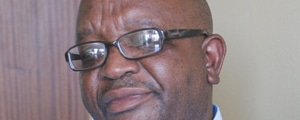
The 2014 Zimbabwe National Budget is around the corner. It is no secret the resource envelope will be hardly enough for four or five ministries only.
Painona with Tapiwa Nyandoro
Ex-minister Tendai Biti says Zimbabwe needs outsider budgetary support. The current minister, Patrick Chinamasa is talking of the Budget Bill being passed into law late, in January 2014, ostensibly to give his ministry time to draft it and Parliament time to debate it.
But the truth may be that his begging bowl is still empty. He hopes in due course his incessant knocking on various doors will be heard.
He was in Washington recently, and came back empty handed. His predecessor thinks he is placing hope on China or other members of the BRICS riding to the rescue. Such “naivety”, Biti believes, is soon to be exposed for its folly. What then is the way forward? Going it alone has been suggested as the solution by none other than the Head of State.
But that requires courage, a commodity, when it comes to fiscal management, in short supply. A beginning in this direction, nonetheless, could see help eventually forthcoming. For is it not said “God helps those who help themselves?”
Minister Chinamasa and his colleagues, if they choose to follow his Excellency’s suggestion would immediately embark on an across the board austerity drive.
Right sizing and down sizing may now be unavoidable, including that of the bloated legislature and the executive. That is the first way to create fiscal space, and impress would be fiscal benefactors, China included.
- Chamisa under fire over US$120K donation
- Mavhunga puts DeMbare into Chibuku quarterfinals
- Pension funds bet on Cabora Bassa oilfields
- Councils defy govt fire tender directive
Keep Reading
The second and more sustainable way is to grow the economy through further reforms in agriculture, labour law, and investment and exports incentives. Given this obvious scenario, it came as a surprise to many in industry, when the Zanu-PF politburo took a position to raise the minimum wage to the poverty datum line. What could have been its motive?
With the IMF in town, probably writing Chinamasa’s budget, was the Politburo playing politics? Or is it simply pressuring those who it thinks may have siphoned ill gotten proceeds from the Marange Diamond fields to bring the loot back?
Whatever the case, someone must have misled the State President into believing that the country could afford to increase civil service salaries to a point where they are significantly higher than those obtaining in South Africa, where the national average monthly wage is below $300.
Vice-President Joice Mujuru on the other hand was right to observe that retail prices in Zimbabwe, especially of food, are twice as high as in RSA. This should provide a point for correction.
With unemployment over 80%, Zimbabwe’s remuneration strategy must aim at attracting investment and the creation of jobs. And this may be achieved by reducing taxes and government expenditure as a percentage of GDP. The Minister of Finance should be aiming for a more modest budget of $3,6 billion and not the projected $4, 4 billion.
To do that, he may have to do the following:
- Freeze all salary increments, be it in the public sector, State owned enterprises, or the private sector.
- Raise tax thresholds and reduce import duties and VAT.
- Reduce unsustainable executive perquisites and/salaries in parastatals town councils, the executive itself, the civil service and uniformed forces. An act of Parliament, the Economic Recovery Act, may be necessary.
- Downsize the army and police to a combined total of 25 000 men. The special elections brought to the fore that the police had ballooned significantly since independence.
Although the optimum ratio of citizens per peace officer may be the target in a multi-vision multi mission Cabinet, a focused Cabinet with one vision of growing the economy has to take action. Zimbabwean police officers, army cadres and even prison officers have done sterling work for UN peacekeepers.
A sizeable chunk of our uniformed forces should be offered on loan to the UN to stabilise the DRC, Central Africa Republic and the likes of Mali for years to come.
Budgetary support for the mission could be solicited from the Group of Twenty as well. The sum total is helping those needy countries, whilst allowing Zimbabwe to balance its books.
- Significant privatisations of some government assets in a transparent manner by international public tender could raise capital for the government whilst at the same time ensuring conditional guaranteed investment into the country by successful bidders to grow capacity and create jobs and a broader tax base.
- Land Titling in “commercial farms” is overdue. Legacy issues, as regards the land reform exercise, must be addressed in a holistic manner, as the agriculture industry is made bankable.
- Labour Reform. Wages and salaries ought to be linked to productivity and affordability, where an employer is adequately capitalised.
The current wage negotiations system must be scrapped. It is a one glove fit all type, and favours big established companies at the expense of much needed start-ups.
Besides, school leavers may very well want to work for $200 per month or less as they get the much needed experience. Despite our productivity being far lower than China’s in virtually all industries, including textiles, our wages are unsustainably higher.
Government must summon the courage to run the country by providing an enabling environment. The time for populism and scoring political points is over.











